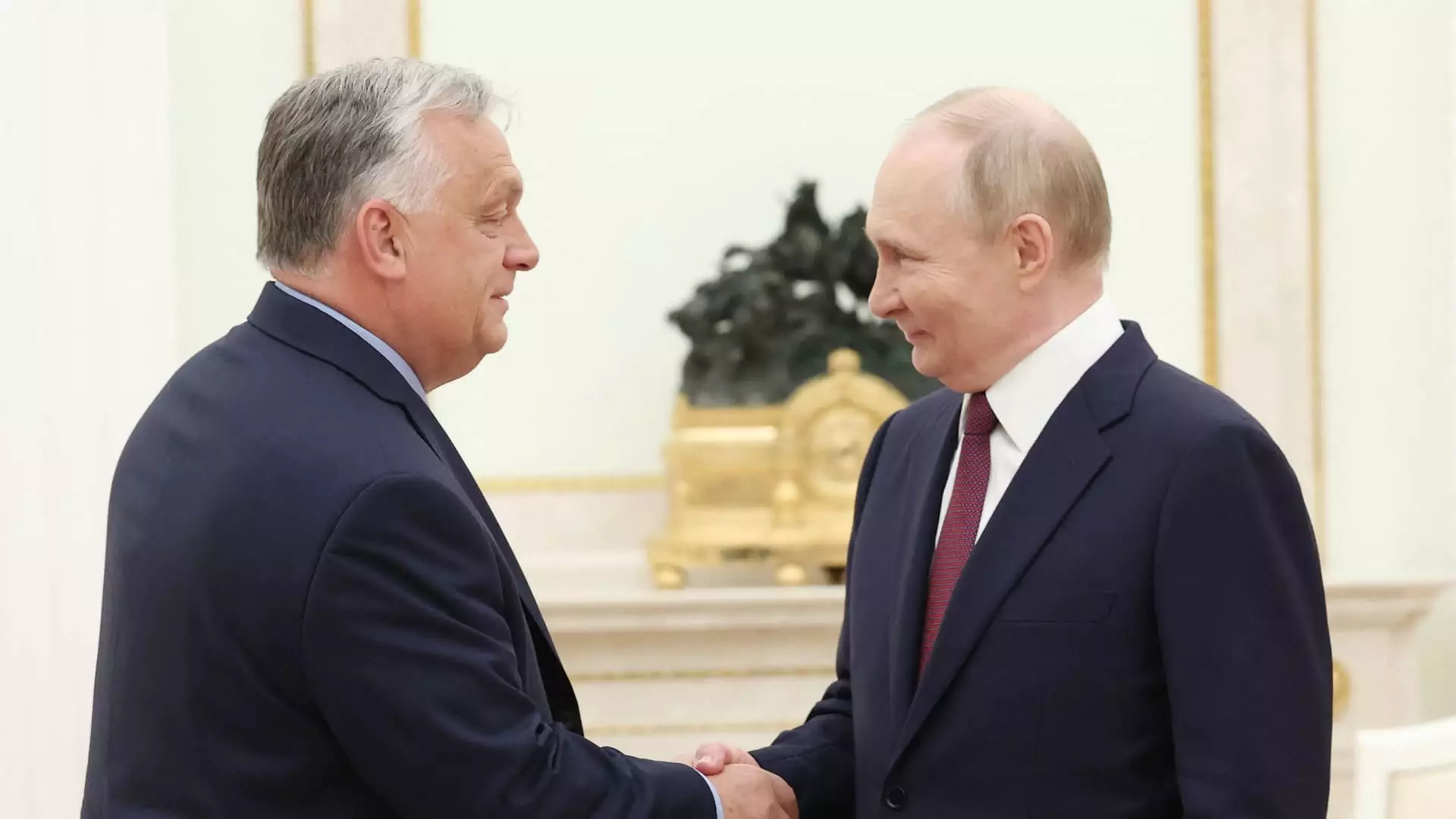Hungarian Prime Minister Viktor Orban’s recent visit to Moscow to meet with Russian President Vladimir Putin has sparked criticism from the European Union. Despite Hungary’s assumed role as the EU’s rotating presidency, Orban has maintained a close relationship with Russia, even as other Western countries have severed ties in response to the 2022 invasion of Ukraine. This has put Hungary in a unique position, allowing the country to engage in dialogue with both Russia and Ukraine.
Orban has positioned himself as a “peacemaker” in the region, advocating for dialogue between the conflicting parties. His visit to Moscow is part of what he describes as a “peace mission,” following a meeting with Ukrainian President Volodymyr Zelenskyy earlier in the week. During his visit to Ukraine, Orban called for a cease-fire in the hostilities with Russia, emphasizing the need for peace talks to move forward.
Orban’s actions have raised eyebrows within the European Union, with EU officials questioning his authority to represent the bloc. EU Chief Diplomat Josep Borrell clarified that Orban’s trip to Moscow was purely a bilateral engagement between Hungary and Russia, and that Orban did not speak for the EU. European Commission President Ursula von der Leyen echoed this sentiment, warning that appeasement towards Russia would not resolve the conflict in Ukraine and emphasizing the need for unity and determination among EU member states.
The Ukrainian Foreign Ministry expressed surprise at Orban’s visit to Moscow, stating that it was made without coordination with Ukraine. The ministry reiterated Ukraine’s stance that any agreements regarding the country should involve direct consultation with Ukrainian officials. Ukrainian President Zelenskyy has put forward a peace formula as the most viable path towards a resolution of the conflict, emphasizing the need for international support and cooperation.
As the current holder of the EU’s rotating presidency, Hungary plays a crucial role in chairing meetings and ensuring the continuity of the EU’s work. Orban’s ambitious goal to “make Europe great again” has drawn parallels to former U.S. President Donald Trump’s campaign slogan. However, his independent actions in engaging with Russia have raised questions about Hungary’s alignment with EU policies and priorities.
Hungarian Prime Minister Viktor Orban’s visit to Moscow has stirred controversy and drawn criticism from both European and Ukrainian officials. While Orban portrays himself as a mediator seeking peace in the region, his approach has been met with skepticism and calls for greater unity among EU member states. The coming months will reveal the impact of Orban’s actions on Hungary’s relationship with the EU and its role in shaping the future of European politics.



Leave a Reply